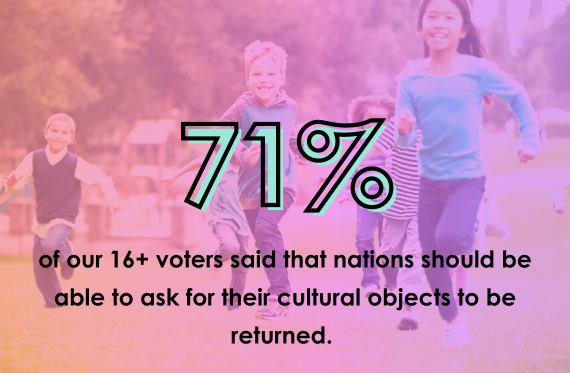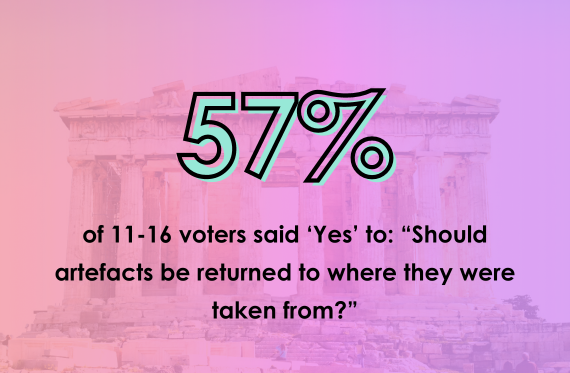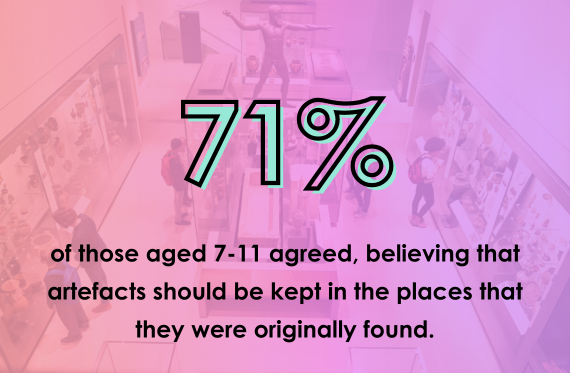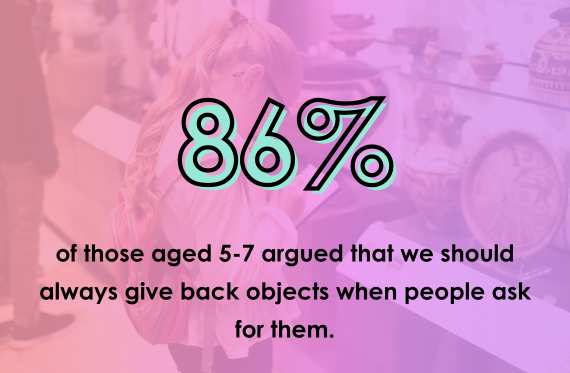Total votes
5-11 votes
11-16+ votes
When perusing your local museum (be that the one run by your local authority or the Natural History Museum) there is always a treasure trove of artefacts that tell a story. Frequently that is the story that the curator wants to tell, but sometimes, and if you look closely, there is another story.
One that dips back into the uncomfortable history of Empire and the looting of cultural artefacts by British soldiers, explorers and 19th century ‘Great Powers’ diplomacy. This legacy is one that crops up not only with the Parthenon Marbles at the British Museum or the Benin Bronzes, but also in the many anthropological artefacts that fill museums across the country.
For this VoteTopic, voters mused about where historical and cultural objects belong, in light of the ongoing debate around the repatriation of artefacts to different nations and peoples from museums in the UK and worldwide.

"Artefacts should be returned to countries they were taken from because it's that country's history."

"We need to have more information in order to fully understand the transaction/event that took place in order to acquire these artefacts before making a fair decision. There are many factors in place."

"Why call it the British Museum at all? Most of the stuff there isn't British! Why should history be in one place? Makes no sense. It's taking away the glory of every other country."




Thank you so much to our Impact Partner, the Horniman Museum and Gardens for responding to what the children said about this topic.
The Horniman Museum and Gardens is based in South-East London and houses an award winning series of collections and exhibits. Until 2022, it was home to some of the Benin Bronzes. In November of that year, the artefacts were repatriated to their origin country, Nigeria, from where they were taken by British soliders in the late 19th century.